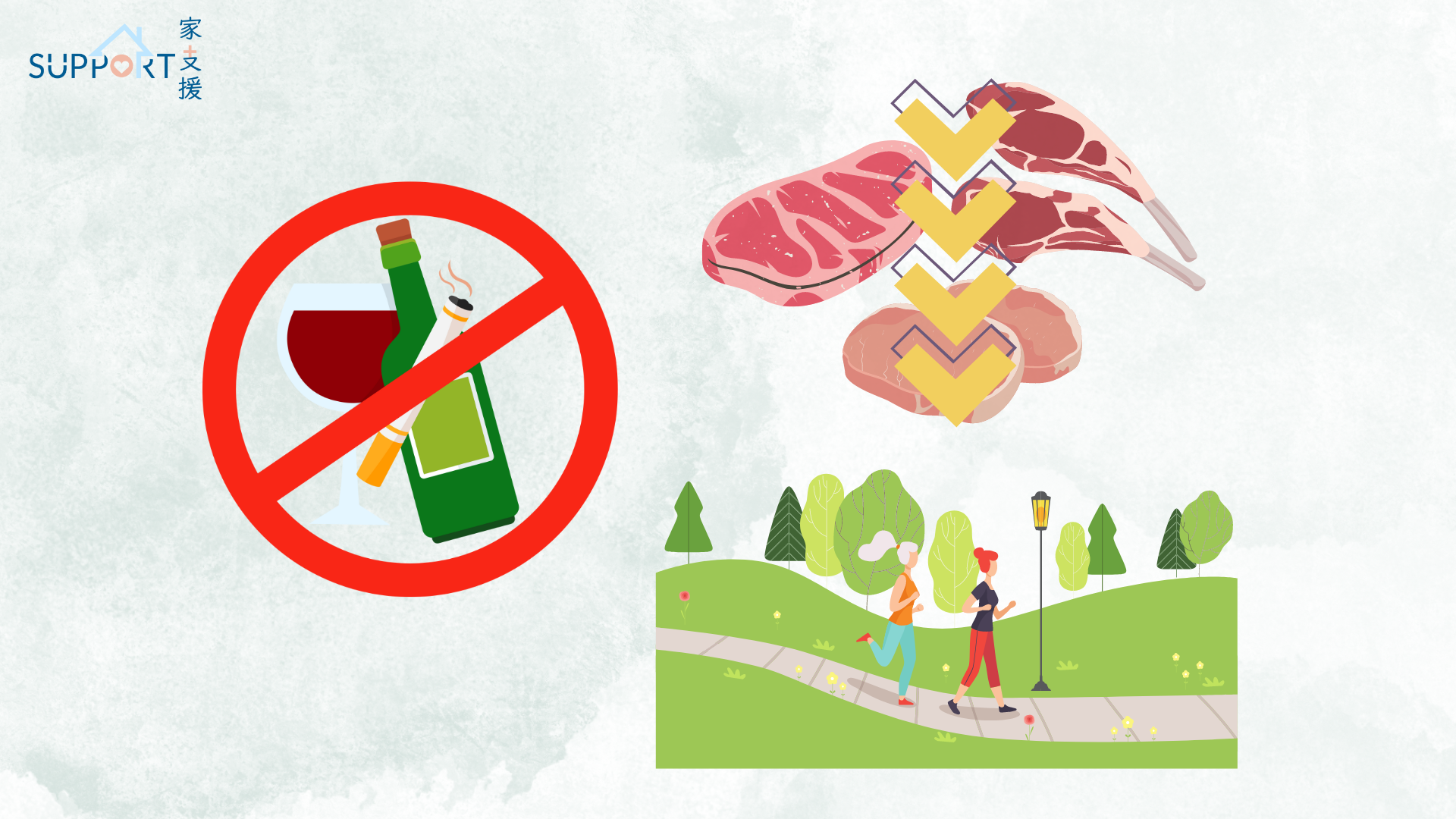Dealing with FCRP requires balancing a sensible awareness of the risk of recurrence with a plan to monitor your health while building wellbeing. To do this you should:
1. Talk to your oncologist about recurrence or progression and ask them some questions to help you better judge the risk of recurrence
- What is the probability of recurrence?
- What proportion of patients with your stage and type of cancer have a recurrence?
- When is it most likely to happen?
- What should you look out for?
- If progression, then what changes should you anticipate and when, and what can you do to maintain wellness?

2. Place the focus of your attention outside
- Avoid monitoring your body for “signs of cancer”. Remember aches and pains have happened all your life before cancer and continue to happen after cancer too, maybe more frequently as treatments can leave long lasting effects on the body. Don’t assume each pain means cancer.
3. Adopt a healthier lifestyle
- Stop smoking – this is the most important thing if you are a smoker.
- Significantly reduce and limit your alcohol intake. Ideally, quit all together, but if not have no more than one drink every third day.
- Diet - reduce or eliminate red meat. Replace with plant-based protein, such as tofu, beans, parsnips, fish and white meat. Make fruit and vegetable 80% of your diet. Eat a wider variety of foods. Eat some traditionally fermented products daily (yoghurt, kimchee, sauerkraut, tempeh, kombucha or kefir). Fermented foods contain high amounts of probiotics that are antioxidant, antibacterial, and antifungal. Eat more nuts and whole grains such as red and black rice.
- Do regular exercise daily. Join a programme, group or do it with family/friends. Try to do some vigorous exercise every day. Walk as much as you can, especially in the countryside.
- Reduce your stress as much as possible.

4. Practice deep relaxation to help relax the mind and body through these simple steps
- Make a set time and place each day where you will not be disturbed for 30 minutes that has a comfortable chair/sofa.
- Switch off your phone.
- Sit/lie, remain still and systematically relax each muscle in your body.
- Allow your mind to drift – just observe what happens. Don’t judge or try to control your thoughts. Rather, just witness how your mind behaves.
- Remain awake but fully relaxed. When finished, slowly move and resume normal activities. Keep relaxed. This helps combat stress and anxiety. The more you practice, the better you will get at relaxing.
5. Re-evaluate your life goals and things that bring you happiness
- Somehow, cancer pushes people to rethink what is most important to them in their lives, this is a very positive experience. Understanding what is important to you can help you reassess your plans and priorities to achieve as much as you can.
6. Name your fears.
- What do you need to do to face each one? Are there people who can help you? Talk to them, family, friends, and professionals. Find out what your options are if you don’t know. Make whatever arrangements are needed.
7. Maintaining honest two-way communication with your loved ones, doctors and others after your cancer diagnosis
- You may feel particularly isolated if people try to protect you from bad news or if you try to put up a strong front. If you and others express emotions honestly, you can all gain strength from each other.
Reference:
https://jcicc.med.hku.hk/wp-content/uploads/2020/02/D2_Fear.pdf




